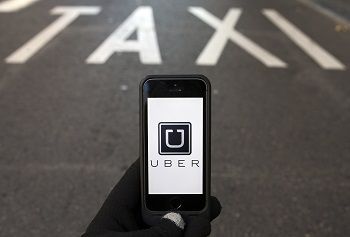Ride hailing company Uber Technologies has increased the size of its closely guarded debut high-yield bond, a deal widely seen as a stepping stone to a potential initial public offering.
The private placement has been increased to US$2bn from US$1.5bn, five market sources told IFR on Wednesday. Two of those sources said the deal will allocate on Thursday.
Uber is the latest in a handful of companies burning cash that has looked to junk bond investors for funding at a time when borrowing costs are still very low and appetite for higher yielding assets is strong.
Its predecessors include office space provider WeWork, which made its debut in the junk bond market in April, and electric carmaker Tesla that sold its first and only high-yield bond last year. Both have been volatile in secondary markets.
“The market this year has definitely been open to stories,” said Tim Schwarz, a credit analyst at Investec Asset Management in New York.
“Part of that is that high-yield net supply has been down about 28% since last year and companies that do end up coming don’t have a lot of competition.”
Uber has been marketing the deal to a small number of investors over the pat week, with the help of Morgan Stanley.
It is expected to raise US$1.5bn from a eight-year non-call three year bond, which was increased from US$1bn, and US$500m from a five-year non-call two tranche with respective yields of 8% and 7.5%, the sources said.
Some said those yields were not high enough.
“Eight percent is a high yield,” said Kathleen Gaffney, director of fixed income and lead portfolio manager for Eaton Vance.
“But that’s today, that’s short-term thinking. Where are rates headed, and is 8% going to be the right number for Uber in the long term? I tend to doubt it. All you get is the coupon. It’s so much better to wait and trade for it on discount.”
DEAD END
Several investors told IFR that it had been tough to get information on the deal, structured as a 4(a)(2) issue.
“My understanding is that they started with a fairly small group, a handful of accounts, but word got out and people started calling Morgan Stanley,” a portfolio manager at a large US-based investment manager told IFR.
“Then there was a conversation with the company about who would get the information and who would be allowed to participate. They are keeping the group tight and keeping information close the vest.”
Privately held Uber declined to comment, as did Morgan Stanley.
Jerry Marlatt, a lawyer at Mayer Brown, told IFR that private placements typically are sold under Rule 144A which requires securities to only be sold to qualified institutional buyers with at least US$100m of assets under management.
But under a 4(a)(2) format, the securities can be sold to smaller investors.
“That could include friends and family of officers of the company, or founders of the company,” said Marlatt.
IPO NEXT ON ROUTE
Still, the bond deal will provide another valuable source of financing for Uber.
It has completed several rounds of private fund raising - including a US$1.25bn investment from technology investor SoftBank in January, and a US$3.5bn investment from Saudi Arabia’s sovereign wealth fund in June 2016, according to Refinitiv data.
It also made its debut in the leveraged loan market in 2016, and in March this year, privately placed an upsized US$1.5bn term loan directly with investors through its own capital markets team, LPC reported. nL1N1R51C0
The loan, like the bond, helped fund Uber’s cash burn until its planned 2019 initial public offering, and also required investors to get comfortable with unusual credit metrics like negative Ebitda.
Uber said in August its net loss narrowed to US$891m in its second quarter ending June 30 from US$1.1bn a year earlier, and its Chief Executive Dara Khosrowshahi said last month the company is on track to go public next year, Reuters reported.
Rohit Kulkarni, managing director and head of research at SharesPost - a research and a secondary trading platform for venture capital-backed companies - said the bond placement would likely be regarded as a positive by equity investors.
“If they price a high-yield bond within a reasonable range, that would be a clear positive signal that Uber is taking clear steps in carving out a pathway to profitability, and a precursor to a very large IPO.”
Kulkarni agrees that an IPO could value Uber at US$120bn, as reported by the Wall Street Journal on Tuesday, based on a nine-times multiple of the US$11bn of revenue Uber is expected to generate this year and Uber’s holdings in three other non-US based ride-sharing companies, including in Russia and China.
“For a company like Uber, that feels like a fairly conservative revenue multiple,” said Kulkarni.
“When it goes public, people will likely view this company as significantly more valuable than US$100bn.”
Depending on how it is structured, Uber’s IPO could be among the largest deals of its kind, rivaling the US$25bn raised by Alibaba in 2014.
